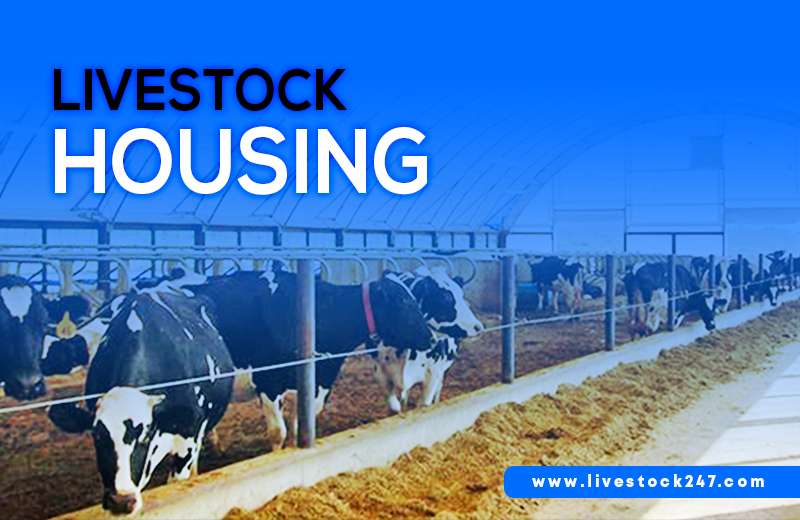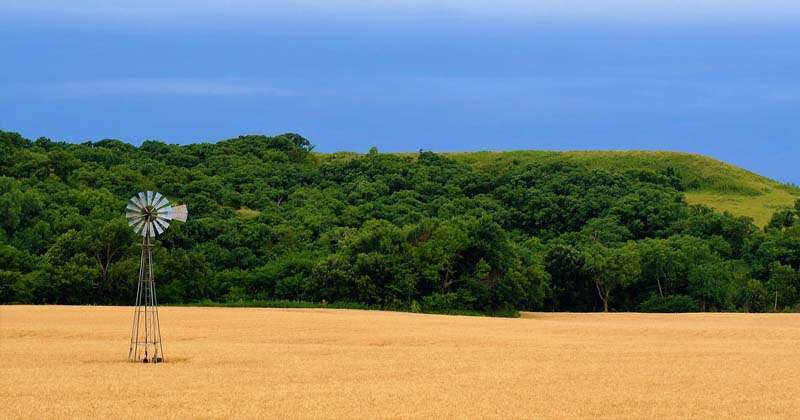When it comes to running a small homestead, choosing the right livestock is key to success. You want to ensure that your animal husbandry practices are sustainable and efficient, and that starts with selecting the right animals for your needs. Whether you’re looking for eggs, meat, milk, or even pollination services, there are several options to consider. Chickens, Pekin ducks, honey bees, goats, catfish, pigs, rabbits, sheep, cows, turkeys, and breeding dogs are among the top choices for small homesteads. Starting with smaller livestock like chickens can be a great way to get your feet wet before branching out to other types of poultry and larger animals. Factors such as the amount of food you can grow for them and the local climate should also be taken into account. With careful research and consideration, you can find the perfect livestock to suit your needs and ensure a thriving homestead.
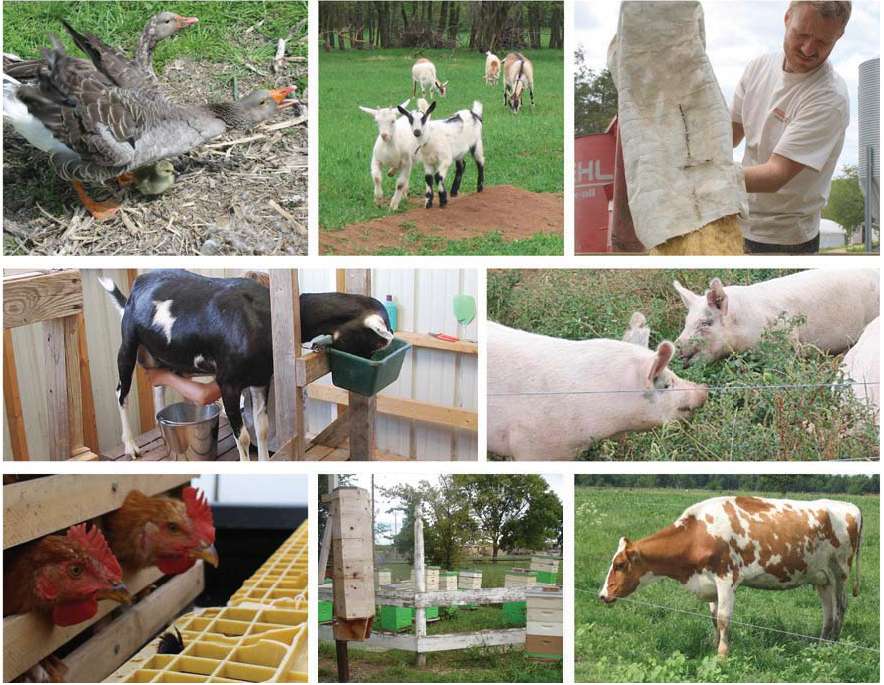
Factors to consider when choosing livestock
When deciding on the best livestock for your small homestead, there are a few important factors to keep in mind. First, consider the amount of food you can grow for the animals. Different animals have varying dietary requirements, and it’s essential to ensure you can meet their nutritional needs. Additionally, take into account the local climate. Some livestock thrive in certain climates, while others may struggle. It’s important to choose animals that can adapt to your specific environment to ensure their well-being and productivity.
Starting with smaller livestock
If you’re new to raising livestock, it’s generally recommended to begin with smaller animals before gradually expanding to larger livestock. Starting with smaller livestock allows you to gain valuable experience and knowledge about animal husbandry while also minimizing the initial investment and workload.
Begin with chickens
Chickens are an excellent choice for starting your small homestead. They are versatile animals that require relatively low space. Chickens can thrive in both urban and rural environments, making them suitable for a range of homesteading setups. They have the added benefit of providing a consistent supply of eggs and meat, making them a valuable asset for self-sufficiency.
Gradually add other poultry
Once you have gained confidence and experience with raising chickens, you can consider expanding your poultry options. Ducks, such as Pekin ducks, are a popular choice. They have similar care requirements to chickens but offer different benefits, such as egg production and pest control.
Consider adding larger livestock
Once you have established a successful poultry operation, you may want to consider adding larger livestock to your homestead. This could include goats, pigs, sheep, cows, or even turkeys, depending on your specific goals and available resources. Larger livestock require more space and may have additional care requirements, but they also offer a greater potential for self-sufficiency and a diversified homestead.
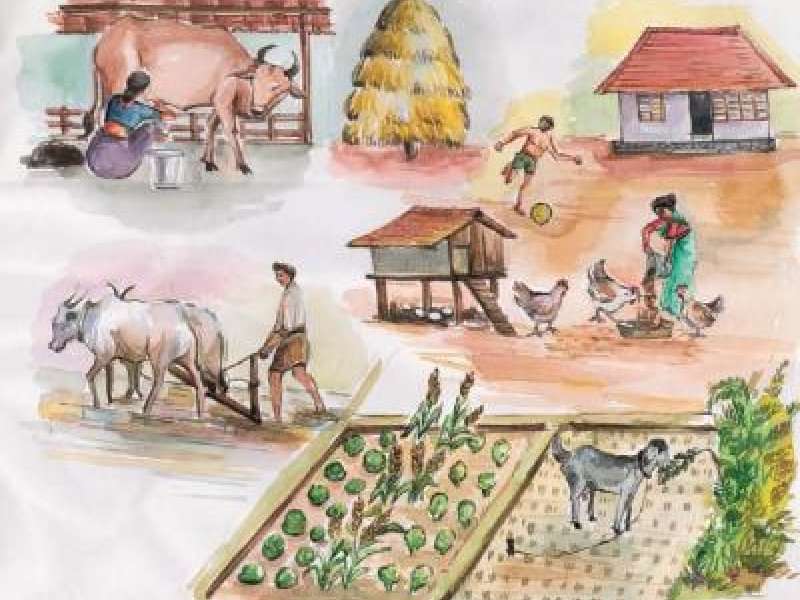
Chickens as a livestock option
Chickens are arguably the most popular choice for small homesteads, and for good reason. They are versatile animals that adapt well to various environments and can be raised in urban, suburban, or rural settings. Here are some key reasons why chickens are a great livestock option:
Versatility of chickens
Chickens serve multiple purposes on a small homestead. They are known for providing a consistent supply of fresh eggs, making them an excellent source of protein and nutrition. Additionally, chickens can be raised for meat, providing a sustainable and organic alternative to store-bought poultry products. Keeping chickens also allows you to recycle kitchen scraps and garden waste as chicken feed, reducing waste and promoting sustainability.
Low space requirements
One of the advantages of raising chickens is that they don’t require a significant amount of space. Even in urban areas with limited backyard space, you can successfully raise a small flock of chickens. A standard-sized chicken coop can accommodate four to six chickens comfortably. For those with larger properties, chickens can enjoy free-ranging and foraging, further reducing the need for additional space.
Ability to provide eggs and meat
Chickens are prolific layers, typically laying one egg per day or every other day, depending on the breed. This consistent supply of fresh eggs is a significant benefit for homesteaders looking to be self-sufficient. In addition to eggs, chickens can also be raised for meat. While they may not produce as much meat as larger livestock, raising chickens for meat is a cost-effective and sustainable option for small homesteads.
Rabbits as a livestock option
Rabbits are another excellent choice for small homesteads, particularly for those with limited space. Here are some reasons why rabbits could be the right livestock option for your homestead:
Minimal space requirements
Rabbits require significantly less space than larger livestock, making them ideal for homesteaders with limited land. They can be housed in small hutches or cages, which can easily fit in a backyard or even on an apartment balcony. This makes rabbits a viable option for urban homesteads or areas with strict zoning regulations.
Consistent supply of meat and fur
One of the primary benefits of raising rabbits is their ability to provide a consistent supply of meat. Rabbit meat is lean, flavorful, and high in protein, making it a healthy addition to a homesteader’s diet. Additionally, rabbits also offer fur, which can be harvested and used for various purposes, including crafting and insulation.
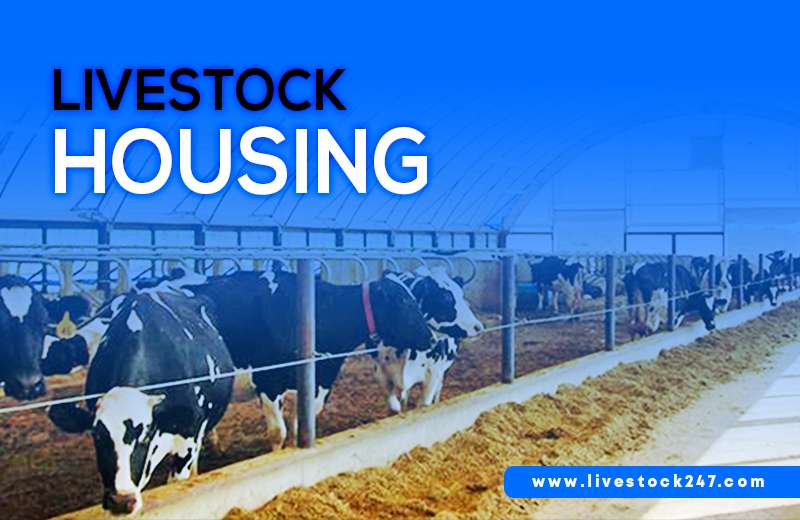
Goats as a livestock option
Goats are incredibly versatile and can be an excellent livestock option for small homesteads. Here are some reasons why goats should be considered for your homestead:
Adaptability and efficiency as grazers
Goats are known for their adaptability and efficiency as grazers. They can thrive on a variety of vegetation, including brush, weeds, and grass, making them excellent for land management purposes. While other livestock may require specific types of forage or supplemental feeding, goats can make use of natural grazing resources and help clear land for more productive use.
Ideal for land management
In addition to their grazing capabilities, goats can also be beneficial for land management purposes. They can help control vegetation growth and reduce the risk of wildfires by clearing out overgrown areas. This can be particularly advantageous for homesteaders with forested or brushy land that needs to be maintained.
Milk production
Many homesteaders choose to raise goats for their milk production. Goats’ milk is rich in nutrients and can be used to make various dairy products, including cheese, yogurt, and butter. Goat’s milk is also easier to digest for those with lactose intolerance or dairy sensitivities, making it a suitable alternative to cow’s milk.
Bees as a livestock option
While not traditionally considered livestock, honey bees can be a valuable addition to a small homestead. Here’s why bees should be on your list of potential livestock options:
Value for pollination services
Honey bees are essential pollinators, playing a crucial role in the reproduction of many plants, including fruits, vegetables, and nuts. By keeping beehives on your homestead, you can not only support the local ecosystem but also increase the productivity and yield of your garden or orchard. The bees will help ensure that your plants are properly pollinated, leading to a more abundant harvest.
Producing honey
A significant benefit of raising honey bees is the opportunity to harvest your own honey. Honey is a versatile natural sweetener and can be used in various culinary applications. Keeping bees allows you to have a sustainable source of honey, reducing your reliance on store-bought alternatives. Additionally, honey has numerous health benefits and is often praised for its antiviral and antibacterial properties.
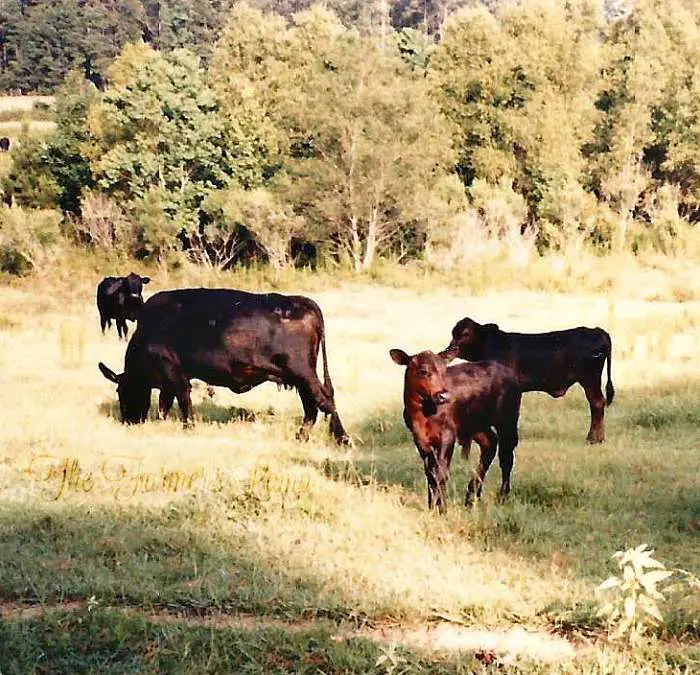
Specific care requirements for livestock
It’s essential to understand that each type of livestock has specific care requirements and considerations. Here are some factors to keep in mind when caring for your animals on your small homestead:
Fencing
Proper fencing is crucial for keeping your livestock safe and contained. Depending on the type of livestock, you may need different types of fencing, such as chicken wire for poultry or electric fencing for larger animals like goats or cows. Ensure that your fencing is secure, properly maintained, and can withstand the pressure exerted by your animals.
Predator protection
Predators can pose a significant threat to your livestock, especially if you live in an area with a high population of predators such as coyotes, foxes, or raccoons. Implementing predator protection measures, such as secure coops or enclosures and the use of predator deterrents, can help safeguard your animals.
Suitable living conditions
Each type of livestock requires suitable living conditions to thrive and remain healthy. This may include well-ventilated and insulated shelters, adequate space for grazing or exercise, and proper sanitation practices. It’s important to provide a comfortable and clean environment for your animals to minimize the risk of disease and maintain their overall well-being.
Researching and learning about specific needs
Before adding any type of livestock to your small homestead, it is crucial to conduct thorough research and learn about the specific needs and requirements of each animal. This will ensure that you provide the best care possible and set yourself up for a successful and sustainable endeavor. Some key aspects to consider include diet, medical needs, breeding requirements, and potential legal restrictions or regulations associated with owning certain types of livestock.
Importance of research
Researching beforehand allows you to make informed decisions about the type of livestock that will suit your homestead and your goals most effectively. It also helps you anticipate any challenges or obstacles that may arise and prepare accordingly. Understanding the specific needs, behaviors, and characteristics of each type of animal will enable you to create a suitable environment and develop appropriate management practices.
Understanding livestock needs
By understanding the needs of your chosen livestock, you can tailor your homestead’s infrastructure, resources, and management practices to ensure the animals’ welfare and maximize their productivity. This includes providing appropriate feed and nutrition, ensuring access to clean water, maintaining proper hygiene, and implementing preventative health measures. Regular monitoring, observation, and interaction with your livestock will also help you detect and address any potential issues or concerns promptly.
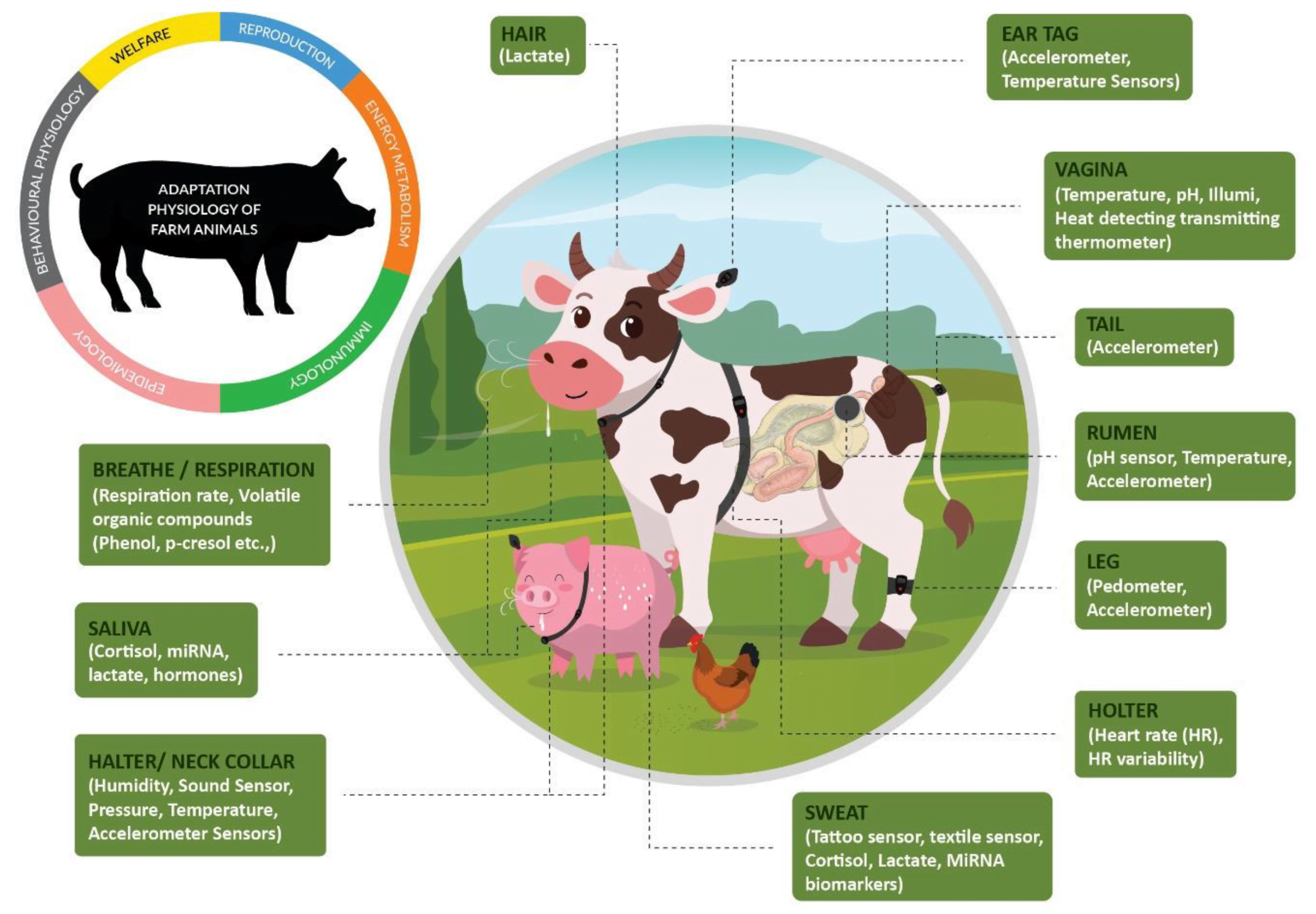
Top 11 livestock options for small homesteads
Choosing the right livestock for your small homestead is crucial for sustainable and efficient animal husbandry. Here are the top 11 livestock options that are well-suited for small homesteads:
- Chickens: Versatile, low space requirements, provide eggs and meat.
- Pekin ducks: Similar care requirements to chickens, offer eggs and pest control.
- Honey bees: Value for pollination services and honey production.
- Goats: Adaptability as grazers, ideal for land management and milk production.
- Catfish: Suitable for small ponds, provide a consistent supply of freshwater fish.
- Pigs: Can be raised for meat, efficient converters of food scraps, require proper containment.
- Rabbits: Minimal space requirements, consistent supply of meat and fur.
- Sheep: Suitable for grazing and fiber production, require adequate pastureland.
- Cows: Larger space requirements, provide milk, meat, and potential for diversifying income streams.
- Turkeys: Can be raised for meat, require more space than chickens, unique flavor profile.
- Breeding dogs: Can be kept for specific purposes such as herding or guarding livestock, require training and proper socialization.
Each of these livestock options has its own set of benefits, considerations, and care requirements. It’s important to thoroughly research and assess your priorities, resources, and capabilities before making a decision. By carefully selecting the right livestock for your small homestead, you can create a sustainable and rewarding environment that supports your self-sufficiency goals.

